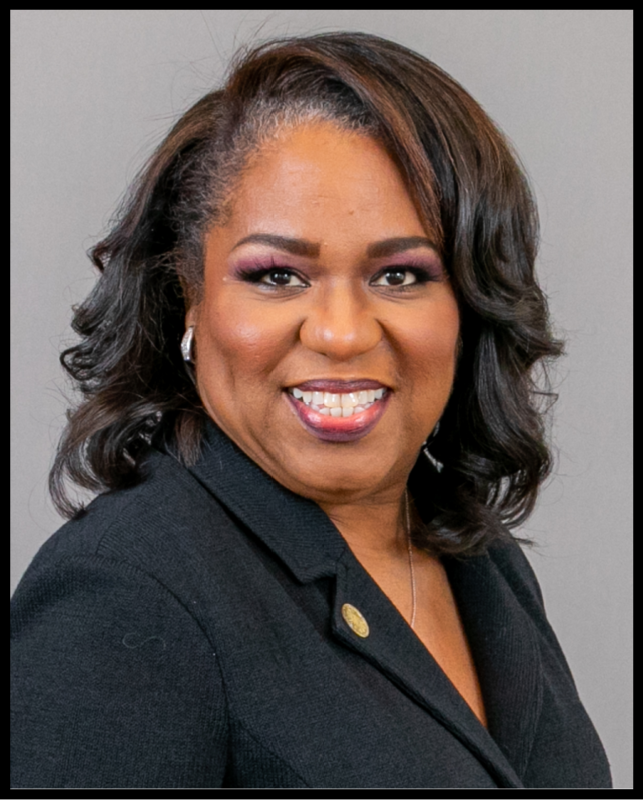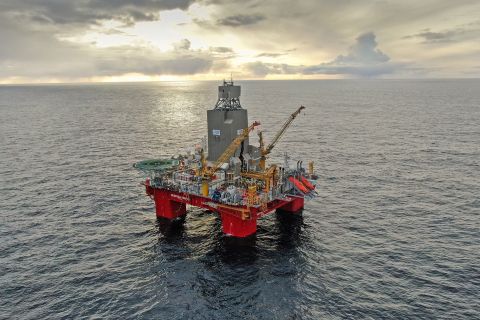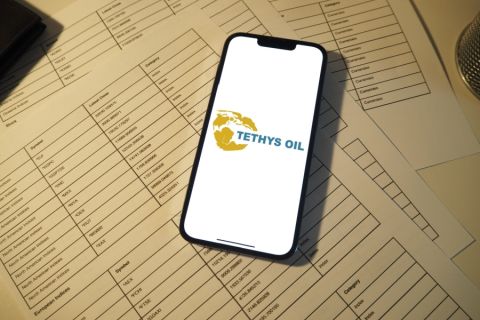Presented by:

It’s just before 3 p.m. on a weekday and Paula Harris is finally breaking for lunch—still working.
Despite retiring from Schlumberger in 2020 after 34 years, last serving as global director responsible for developing ESG programming among other duties, Harris’ calendar stays full.

She started her own company, DPM Alliance Energy Group, which specializes in consulting on renewable energy, months before landing a new job with the Astros Foundation. Add to this board member for Chart Industries Inc., The Vessel Group, Houston Children’s Museum and Energized for STEM Academy. Plus, this year Harris became the first black president and second woman president of the Petroleum Club of Houston’s board of directors. It was one in a number of history-making firsts for this petroleum engineer with a passion for encouraging young people to embrace STEM.
“I keep a pretty busy schedule and that’s by design,” Harris said. “I’m always afraid that once you slow down, your mind slows down and your body slows down.”
Hart Energy recently sat down with Harris, whose comments have been edited for length and clarity, to discuss diversity, equity and inclusion (DEI) in the energy sector, her new role at the Petroleum Club and how she continues to inspire future generations.
Hart Energy: Did you ever imagine that you would become president of the Petroleum Club of Houston’s board?
Harris: I had never even thought about being the president of the board. I don’t think it was until after they voted me as president of the board that I realized how kind of historic it was. It was just me taking the next step, going to meetings and making decisions.
Hart Energy: How does it feel telling this story, making history this way in 2021?
Harris: It’s a special place, and I’m definitely honored. Most of my career in this industry has been about me being the first and working really hard to bring along the next 200. Whether it’s being the second African-American woman to get a petroleum engineering degree at Texas A&M or being an African-American woman working offshore on rigs for Schlumberger, which 99.9% of the time I was the only person of color and female out on the rig. I recall saying, ‘Hey, there’s a lot of opportunities in the oil industry.’ I’ve written books on it. I just pray and thank God he’s given me the ability to do this—break a couple of barriers. … They should have been broken a long time ago—not saying that I’m not happy.
What really also made this special is [when doing research ahead of the Petroleum Club’s 75th anniversary] I spoke with the family of the first president, R.E. Bob Smith. I had goosebumps, almost tears in my eyes, because the family said he was such an integrator and focused on helping people of color. He was a huge contributor to the African American community in Houston, specifically in Sunnyside, which is where I’m from. He and Howard Hughes were the two Houstonians on Forbes richest men list. So he was wildly successful in his career. Yet when he gave land and helped pass the bond to build the Astrodome, he would only work with the city if they guaranteed the Astrodome would be integrated. I had no idea of the things that he did for the community.
Hart Energy: Your new role as president comes when the energy industry and other sectors are stepping up their ESG efforts, including on DEI. How are your experiences as a Black woman in the oilfield services industry manifesting itself in some of the roles you serve today?
Harris: Wherever I am—whether it’s president of the club or managing ESG with Schlumberger or serving on a corporate board, the governance and the commitment to the diversity environment is extremely important to me, understanding that this is just a small slice. If we want long-term growth, long-term sustainability or the next generation to buy in, we have to work with them and we have to work with everyone.
One of the challenges with the oil and gas industry right now is that people don’t know our story. We’ve been this very close-knit, monolithic, homogeneous group of white guys and Paula. No one knows our story. No one knows the impact because they haven’t been a part of us. They’ve watched from the outside. They don’t have family members or neighbors who have gone through the ranks of the Big Oil company until now. And so now it’s a little too late.
This new generation is like, ‘Hey, they’re bad and renewables are good.’ They don’t understand the lifestyle they live is because of oil and gas. That’s why they can flip a light, start a car, put on clothes or write with a pen. It’s because of the contributions of oil and gas. Do we need to make transitions? Absolutely. Do we need to look at renewables as part of our whole offerings? Absolutely. But I think that it wouldn’t be as tough on us if they understood the true story behind who we are and how we have positively impacted countries, lives [and] communities all over the world.
Until now, the profiles have been mostly male—white or European. But now, as we become more open, looking at governance, the environment, people of color, women—everyone is in on the decision-making.
Hart Energy: What are some areas in which the energy industry has an opportunity to make progress when it comes to DEI in terms of both gender and ethnicity?
Harris: One of the challenges is that people think they can just open the door once they are ready for more diversity. But it’s a process, meaning we have to get trust back in our industry. That trust may have to come through renewables, and then explaining how brain power from the oil and gas sector helped in the development of renewable energy sources. We’re all in this energy family together.
But it also takes some strategy, meaning kids need to know us in grade school. They need to know about our industry. They need to know that this is a place where you can be successful. You have to start early. You have to invest in these communities and invest in girls’ education around the world, especially in places where girls are allowed to be educated but it’s not a fair education.
I hear ‘Well, there’s no one ready; no one’s prepared.’ I tell these guys ‘Neither were your nephews; neither were your neighbors’ kids. And we had them all day every day and helped them be successful. That same energy put into making sure kids who looked like you were successful should go into making sure girls and kids of color are successful.
Hart Energy: What motivates you?
Harris: I’m motivated by giving back to my community. I’m motivated by the fact that I know there are hundreds of little girls, like I was in Sunnyside at Law Elementary where I went to school, who have the same intellectual capacity as I did, who need support, who need a chance, that hasn’t heard of the energy industry. I’m motivated by helping kids to be strong in STEM, knowing STEM is a ticket and helping my community be better.
“I was never the smartest engineer—not in school, not with Schlumberger—but I always said, ‘You’re not going to outwork me.’” —Paula Harris
I served as an elected official in the Houston Independent School District because I wanted to represent, and I wanted kids to know and see that if you work hard, study hard in school and make good decisions, you can do it. I’m not some anomaly. Hundreds of people, hundreds of kids from Sunnyside could and should follow in my footsteps.
Hart Energy: Speaking to young people, what advice would you give to encourage them to pursue STEM careers, specifically in energy?
Harris: My advice is sometimes to parents: go ahead and push. Go ahead and push. When we see girls and kids of color who are brilliant but have said, ‘I don’t like math’ or ‘I’m not good at math,’ I always say, ‘Well, I’m not good at free throws, but I bet if I stood outside and tried a thousand of them, I would get better. Practice, practice your education.’
Engage in your kids’ education early. Expose them to robotics. Expose them to coding. Expose kids to things that aren’t connected to their phone sometimes unless it is to be developers.
My father didn’t know much about engineering. But the Houston Chronicle (or it may have been the Post) published top salaries on the front page of the Sunday paper and petroleum engineering was always at the top. He said, ‘You can go anywhere you want to school, but I’m paying for a degree in petroleum engineering, and since Texas A&M has the best petroleum engineering school, I’m paying for a degree at Texas A&M in petroleum engineering.’ And that’s how I got here. That’s why I’m always providing camps, pushing camps and writing books on engineering, so that folks don’t just stumble into it.
You have an opportunity to put a strategy together and take advanced math in high school to help you with your college engineering degree. My advice is always study STEM if you can. That’s a big one. Do your best at all you do. I was never the smartest engineer—not in school, not with Schlumberger—but I always said, ‘You’re not going to outwork me.’ I’ll stay late. I’ll get there early. I’ll overperform based on my ability to deliver results.
Recommended Reading
Santos’ Pikka Phase 1 in Alaska to Deliver First Oil by 2026
2024-04-18 - Australia's Santos expects first oil to flow from the 80,000 bbl/d Pikka Phase 1 project in Alaska by 2026, diversifying Santos' portfolio and reducing geographic concentration risk.
Iraq to Seek Bids for Oil, Gas Contracts April 27
2024-04-18 - Iraq will auction 30 new oil and gas projects in two licensing rounds distributed across the country.
Vår Energi Hits Oil with Ringhorne North
2024-04-17 - Vår Energi’s North Sea discovery de-risks drilling prospects in the area and could be tied back to Balder area infrastructure.
Tethys Oil Releases March Production Results
2024-04-17 - Tethys Oil said the official selling price of its Oman Export Blend oil was $78.75/bbl.
Exxon Mobil Guyana Awards Two Contracts for its Whiptail Project
2024-04-16 - Exxon Mobil Guyana awarded Strohm and TechnipFMC with contracts for its Whiptail Project located offshore in Guyana’s Stabroek Block.





